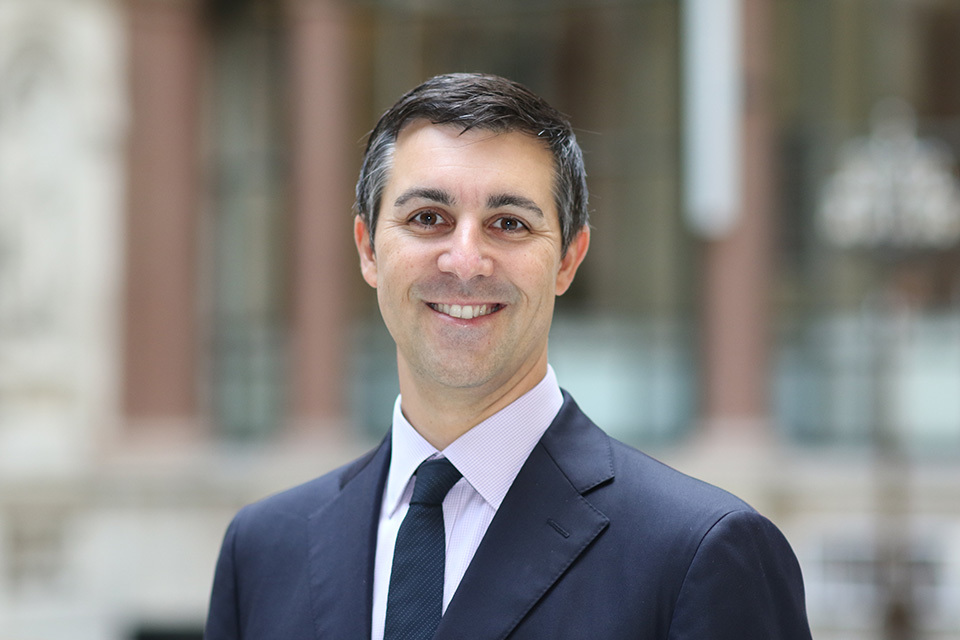
Thank you Mr Chair
The UK supports the EU statement.
On 8 March we mark International Women's Day. A time to reflect on gender equality and to recognise the progress we have made. But no single country has yet achieved gender equality. We all have significant room for improvement. So it is also a time to focus on current and future challenges and how, collectively, we can overcome obstacles that have so far prevented us from achieving this goal.
It is therefore fitting that this year's theme is "Each for Equal" - a notion that together we can help to create a gender equal world. Here, at the OSCE, we have the opportunity to work on turning this into a reality.
As gender equality is central to the success of all that we do, and cuts across the three dimensions, we can use this year to focus on the implementation of the commitments we have all already agreed. We can ensure that gender is not treated as an extra, but as essential, actively integrated at every stage of our work. I wanted to talk about how gender issues are vital for each of the OSCE's three dimensions for security.
Firstly - in the politico-military sphere, as I have mentioned previously in this Council - we know that women's participation is key to the success and longevity of peace processes. Studies have shown that when women meaningfully participate in peace processes, the resulting agreement is 64% less likely to fail and 35% more likely to last at least 15 years. Yet women peace-builders are rarely given a voice at the peace table. And the OSCE is no exception. Women have hardly ever been called on to mediate, facilitate or moderate in the OSCE's four formal peace processes. We can all commit to take action to change this. The OSCE's toolkit: 'Inclusion of Women and Effective Peace Processes', launched last year, is a good place to start.
On transnational threats, there is ample evidence that including women in measures to prevent, tackle and counter such threats improves both our collective effectiveness and our security. This includes integration in all levels of policy decision making and delivery on the ground. As Chair of the OSCE Security Committee, I will identify opportunities to ensure that women's experiences and expertise are reflected at our meetings.
Secondly - on economic and environmental issues, we know that gender equality would add significantly to increased wealth in our economies, globally amounting to trillions of Euros. And yet women are still under-represented in many professions, and importantly they are under-represented at the decision-making level. We can choose to take action to address this. I was pleased to hear the Co-ordinator of OSCE Economic and Environmental Activities commit to stepping up efforts on gender mainstreaming in his Report at today's Permanent Council. In the UK, we made it a target to have a third of all board positions in the UK's FTSE 100 companies being held by women, a target we managed to reach a year ahead of time. But this is only a step towards equality, and we know that we still have more to do.
On the environment, we are only too aware that climate change has the potential to wipe out development gains, impacting multiple sectors in critical areas such as food security, access to health, education and jobs and livelihoods. Again, at the OSCE we can choose to promote solutions that take into account the lived realities of women's lives and diverse experiences. Their full, effective and meaningful participation in climate security activities can advance substantive gender equality and women's empowerment, while contributing to sustainable development, disaster risk reduction and climate change objectives.
And in the Human dimension, we are acutely aware of the importance of 'empowering' women and girls and of preventing violence against them. Yet violence against women and girls persists. The OSCE-led survey on the 'Well-being and Safety of Women' and the subsequent reports contain a wealth of information and specific recommendations for preventing violence against women. Whilst the survey was carried out in OSCE states that are either experiencing conflict, or have experienced it in the recent past, the messages are important for all of us - and necessary for protecting the full enjoyment of human rights by women and girls. Increased violence is also an early warning indicator of potential conflict, a clear example of how 'gender' cuts across the OSCE's dimensions.
Empowering girls and women is a UK priority. Our Prime Minister used his first speech on the steps of Downing Street to underline the pledge he made as Foreign Secretary that every girl should receive 12 years of quality education no matter where she is born. A message that is also reinforced in the Sustainable Development Goals: 'leave no one behind'.
The theme "Each for Equal" is not just about a day. Nor is International Women's Day. It is about what we do every day to achieve gender equality. We have an impressive body of existing commitments and many tools at our disposal. In a year when we celebrate both the 25th anniversary of the Beijing Declaration and 20 years since UNSCR 1325, it is high time that we made these commitments a reality.
For my part as Chair of MenEngage, I am determined to continue to progress work in promoting gender considerations across all three dimensions; ensuring equality in OSCE recruitment processes; a zero tolerance approach to sexual harassment and sexual exploitation and abuse; and promoting implementation of UNSCR 1325. This will be done as a network, but also in conjunction with other networks, including the Female Ambassadors and Women in the First Dimension, together with the OSCE Gender Section and OSCE Gender Focal Points.
The OSCE is the world's largest regional security organisation. We should all work to ensure it is also the world's leading organisation on gender equality.
Thank you






